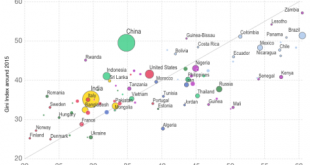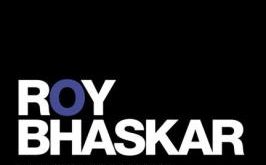Debunking the myth of the self-made individual [embedded content]
Read More »Top 10 Economics Blog Posts
Top 10 Economics Blog Posts Dumb and dumber in modern macroeconomics Krugman vs Kelton on the fiscal-monetary tradeoff The wisdom of crowds How money is created Paul Samuelson — a case of badly invested intelligence Keynes’ critique of econometrics The real debt problem Is macroeconomics for real? MMT — Krugman still doesn’t get it! What is ergodicity?
Read More »Inequality within countries — getting worse or better?
Inequality within countries — getting worse or better? In a recent Twitter post, Max Roser of Our World In Data claimed that the narrative about rising inequality within countries is incorrect. Inequality has been falling in as many countries as it has been rising, he said, “which should be really embarrassing for many news stories that suggest the opposite with great certainty” … What Roser doesn’t mention in his tweet is that the Gini index used here is...
Read More »Zum 50. Todestag von Theodor W. Adorno
Zum 50. Todestag von Theodor W. Adorno DW: 20 Jahre nach dem Untergang des sogenannten Dritten Reichs zogen Rechtsradikale wieder in die Parlamente ein, in Deutschland die NPD. Wie erklärte Adorno den Erfolg rechtsextremistischer Philosophie? Volker Weiß: Bemerkens-werterweise sieht Adorno als Ursachen mehr die Defizite der westlichen Demokratien und weniger das Treiben der alten Nazis, die in den sechziger Jahren noch sehr präsent waren. Er wusste, dass...
Read More »Köbekager
[embedded content]
Read More »August 6, 1945 — a date which will live in infamy
August 6, 1945 — a date which will live in infamy [embedded content]
Read More »Souvenir de Chine
[embedded content]
Read More »Karl Polanyi — Wirtschaft als Teil des menschlichen Kulturschaffens
Karl Polanyi — Wirtschaft als Teil des menschlichen Kulturschaffens [embedded content]
Read More »Roy Bhaskar
What properties do societies possess that might make them possible objects of knowledge for us? My strategy in developing an answer to this question will be effectively based on a pincer movement. But in deploying the pincer I shall concentrate first on the ontological question of the properties that societies possess, before shifting to the epistemological question of how these properties make them possible objects of knowledge for us. This is not an arbitrary order of...
Read More »Barfuß Am Klavier
[embedded content]
Read More » Lars P. Syll
Lars P. Syll




